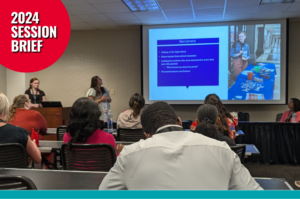By Timothy Goldsmith 
Relationships and youth violence were a key topic of conversation during a breakout session of the 13th annual State of the Public Health Conference, which took place at the Georgia Center for Continuing Education in Athens, Georgia, on Thursday, Oct. 24.
According to a panel of experts, who spoke during the session entitled “Enhancing School Health and Safety,” one in three teens will experience teen dating violence which can eventually lead up to future unhealthy relationships. The continual theme during the discussion: understanding the multiple causes of youth violence and the strategies needed to prevent these situations from occurring.
Georgia PREVAYL (Preventing Violence Affecting Young Lives) is a five-year project that focuses on multiple forms of distress in young adults. The project’s philosophy is that in order to get a better understanding of the conditions that inspire violent situations, one must be able to recognize what is happening within their own communities.
Amber Murphey, a PREVAYL Regional Coordinator overseeing Clarke County, mentioned strategies to combat this problem by spreading awareness in addition to resources to the community.
“We also do presentations for teens apart from our health relationship ambassador program,” said Murphey. “We’ll talk about healthy relationships and what makes a healthy relationship.”
Murphey warns that relationships can take many forms, just like our emotions. PREVAYL uses activities to help students deal with trauma and learn about emotional literacy.
“Emotions can be a tricky subject sometimes when we are talking about trauma, but our activity Little Canvas, Big Emotion kinda helps look at emotions,” Murphy said.
In this activity students are tasked with drawing their emotions without using faces. This is used to help decrease interpersonal violence and dating violence.
Jazmine Nagorski, the Health Educator that helped create the Healthy Relationship Ambassador program, teaches and engages with teenagers about healthy relationships.
“We made sure that the youth perspective is first in all activities,” Nagorski said. “We wanted to make sure that we are actually doing skill building activities.”
Graduates of the program also get a chance to participate and give back to present participants with their experiences. According to Nagorski, the program ensures that they are making a difference in the community, and they report on progress with program participant surveys.
“They also reported that they were likely or very likely to help others navigate healthy relationships,” Murphy said.
